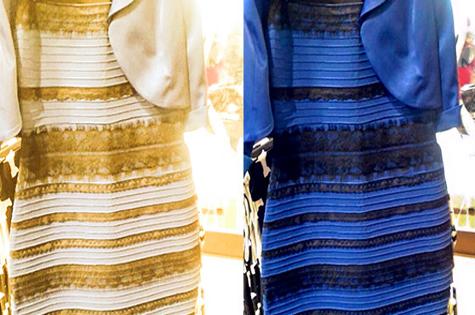The viral phenomenon of the gold and white dress (or is it black and blue?) brought the world’s attention to our relationship with our eyes. We may all see different hues of colour or perceive things at different depths but our eyes are one of our most vital and precious organs.
Eyes can often be forgotten when we think of our own general health and wellbeing, with many of us putting up with squinting at our computers, struggling to read road signs or questioning our children’s ability to distinguish shapes.
The importance of maintaining eye health has been highlighted by studies around the world, which have shown dramatic increases in the prevalence of myopia (short-sightedness), particularly in urban locations in populations with intensive levels of education.
According to Professor Kathryn Rose, Head of Orthoptics at the University of Technology Sydney, environmental factors play a huge role in the development of myopia. She said a key factor in helping eye health issues is lifestyle and prevention.
It is why parenting experts such as psychologist, Dr Justin Coulson, is concerned with the results of recent Galaxy Research which shows that up to 1.5 million Australian children have not had their eyes tested.
Optometrists recommend that children should have their eyes tested before the age of 8 years and almost one-third have never taken their children for eye tests.
With increasing time spent on electronic devices – now more than 30 hours per week on average – there is too little time spent playing outdoors, which is essential to eye health.
“It’s concerning that so few Australian children are getting their eyes tested,” said Dr Coulson.
“This is even more of a worry as our kids are spending more time using technology like PCs, tablets and smartphones instead of playing outside, which is beneficial for their young eyes.”
Outdoor play has been strongly linked to improving children’s vision with a number of studies showing that longer periods spent outdoors when young, can mean better eyesight in later life.
Dr Coulson is also concerned about the psychological impact that undiagnosed eye conditions can have on children.
“Undetected sight problems can lead to poor self-esteem and confidence issues in the classroom, playground and on sporting fields. A child might, wrongly, feel inferior because of something out of their control and this can be associated with children acting out. If parents are concerned that eyesight might be the issue, they should get their children’s eyes tested,” says Dr Coulson.
Orthoptist Handan Otay believes that prevention also has a role to play. He has a few simple tips for looking after your eye health.
Mum (or dad) knows best
The expression 'mother knows best' holds true in assessing eye health. In babies older than eight weeks, if you notice your child not being able to make eye contact or not being able follow a moving object, or making quick, often jerk like movements from side-to-side, not reacting to light, or their eyes not lining up evenly and tuning in or outwards, make sure you seek immediate testing.
Look for unusual behaviours
In older children, if you notice something about the way your child uses their eyes or they seem to behave differently to other children, even if they have normal-looking eyes, there may still be a problem.
Children with vision impairment may rub their eyes more often or have difficulty seeing things at night. They may also have hand-eye coordination issues and hold things closer to their faces. If any of these behaviours are consistent over time, seek assessment.
Be mindful of family history
The first warning sign is a family history of eye issues. If you, or a close family member, have an eye condition it’s important to begin eye testing as early as possible. Eye tests are also important for young children. You can start at just six months of age, and if instructed by a specialist, follow up with regular check-ups.
Carrots are not a myth
While good nutrition won’t prevent you from underlining genetic- or illness-based vision impairment, for long-term eye health, based on supporting evidence from research, particularly the Age Related Eye Disease Study (2001 & 2006), A diet rich in Betacarotene (pro-vitamin A), found in carrots, Omega-3 fatty acids found in fish, and Antioxidants found in leafy green vegetables will all help.
Look into the distance
Make sure you and your children spend ample time outdoors in the sunshine, which helps prevent the development of myopia. Looking into distances further than six metres away also relaxes the eyes.



















__small.png)










